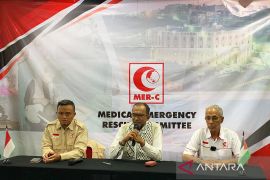Egypt continues to suffer revenue losses from the lack of tourists as the country tries to return to a normal daily life after almost two weeks of riots, a RIA Novosti correspondent said on Sunday.
As stores, banks and other businesses began opening on the first working day, souvenir shops and the main tourist attractions remained closed. Police, who had been unnoticed on the streets earlier, have returned to the streets to regulate traffic in Cairo, while military personnel remain sitting on and standing near their tanks near the capital`s main square, Egypt`s Central Bank, universities and tourist attractions. The city has also returned its famous traffic jams as people made their way to work on Sunday morning.
The main tourist attraction of the pyramids in Giza to the west of Cairo is heavily fortified with military and police and entrance to the site is practically impossible. Where usually hundreds or even thousands of tourists crowd to see the pyramids, only RIA Novosti`s news crew of four people were to be found. The herds of camels, which normally roam near the pyramids as tourist attractions, have been penned up in a corral nearby. The road to the Sphinx has been barricaded by police.
Egyptian Prime Minister Ahmed Shafiq said earlier in the day that the situation in Egyptian cities was returning to normal. "The security situation is improving every day," he said.
In the first days of the unrest, 80% of the nightclubs in Cairo were scorched or burned to the ground by religious radicals, who in the turmoil wanted to erase the "Western footprints" and return to a more "Arab lifestyle." After marches began on January 25, western fast food chains such as McDonald`s and Kentucky Fried Chicken, closed their doors in fear of being destroyed. On Sunday morning, the fast food chains began opening up for business.
Hotels are practically empty with only about 25% of their rooms booked.
Egypt has seen huge protests mainly in the largest cities of the North African country since January 25, with protestors demanding for President Mubarak to resign reaching into the millions.
More than 300 people have been killed and some 5,000 injured in riots throughout the country, with the largest masses seen in the country`s capital of Cairo.
The situation at the Egyptian capital`s Tahrir Square, the main focus of the protests, has improved. The estimate number of protesters is now between 6,000 and 8,000, a RIA Novosti correspondent said. Opposition protestors said, however, that nearly one million will rally on the square on Sunday.
However, some opposition members still refuse to leave the site. "We will continue staying here until the president leaves," a local doctor Muhammad said.
An opinion poll published by Egypt`s state daily Al-Ahram said most Egyptians want an end to the protests and return to normal life.(*)
Editor: Ruslan Burhani
Copyright © ANTARA 2011











